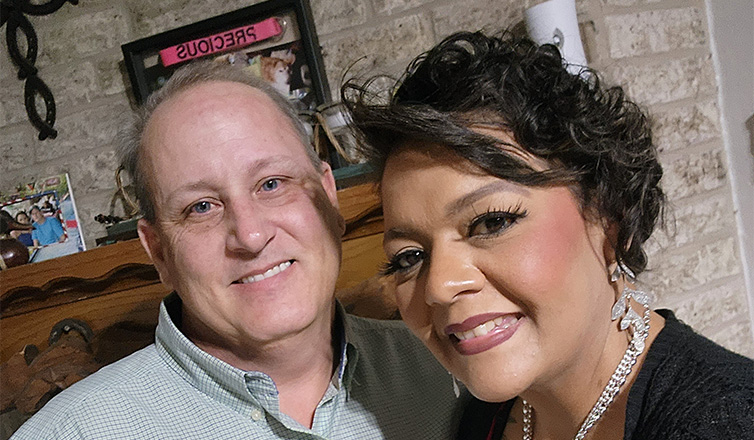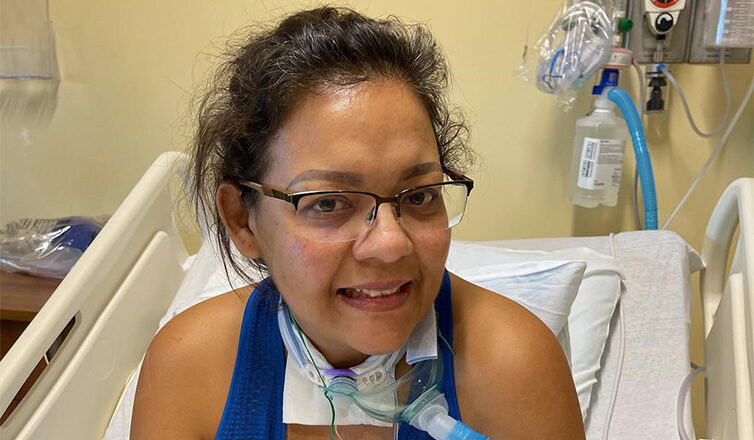Corina is no stranger to health challenges. Her 16-year-old son was born without a spleen which later caused complications that led to both of his legs being amputated. Then her husband suffered a brain aneurysm when he was just 40. And in 2019, Corina started experiencing tingling and pain in her extremities, but initially chalked it up to diabetes complications.
Once she started getting weaker and weaker, she was referred to Dr. Yessar Hussain and went through extensive testing, including a spinal tap and nerve conduction studies. He determined she has a neuromuscular condition called Chronic Inflammatory Demyelinating Polyradiculoneuropathy, or CIDP. It’s a rare kind of autoimmune disorder where Corina’s body attacks her own tissues, specifically her myelin sheaths which are the fatty coverings on the fibers that insulate and protect the nerves.
Corina, like others with CIDP, experience:
- Tingling in her arms and legs
- Gradual weakening of her arms and legs
- Loss of reflexes
- Loss of balance and the ability to walk
While the diagnosis itself was devastating to this wife and mother of four, Corina was relieved to know it had a name.
“I made the mistake of turning to Google to find more information. What I found terrified me,” shares Corina. “I don’t recommend that to anyone. Don’t believe everything you read. Listening to Dr. Hussain and his team gave me hope.”
She was able to enroll in a clinical trial at Austin Neuromuscular. In fact, Corina was the first person in the United States and only the third person in the world to receive an experimental treatment. Corina calls it her ‘miracle drug’ because she immediately started feeling stronger and she was able to walk again.
“Immune modulating medications can help CIDP patients with their muscle weakness and balance. And we’re seeing that the new clinical trials provide more effective therapies with less side effects,” says Dr. Hussain.
And then Corina had a major setback. She contracted COVID in 2021 and the virus attacked her body so much that it landed her in the hospital. Eventually her lungs were starting to shut down and doctors had to put her on a ventilator for 17 days. Fortunately, she beat the odds and was discharged from the hospital six weeks later.
Now she was on another uphill battle to regain her strength and find another treatment protocol (she was dropped from the trial because of her COVID diagnosis and her lengthy hospital stay).
Corina now gets an infusion called IVIG and is feeling stronger and more like herself. She knows that her life will forever be different, but for anyone with a new diagnosis of CIDP, “your life is not over, you can do this”.
For more information about CIDP and other neuromuscular conditions, visit www.austinneuromuscle.com or call (512) 920-0140.

